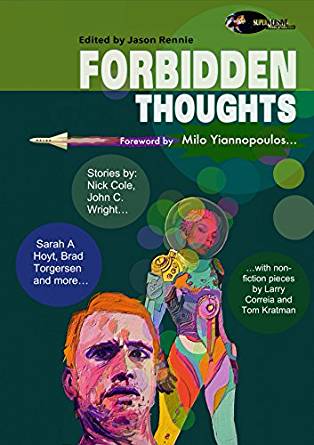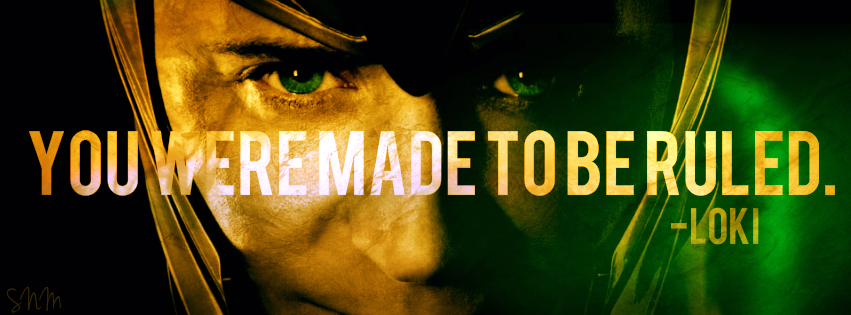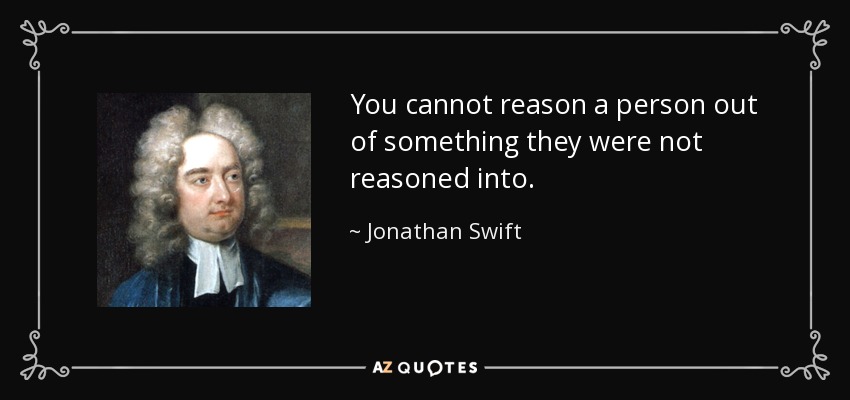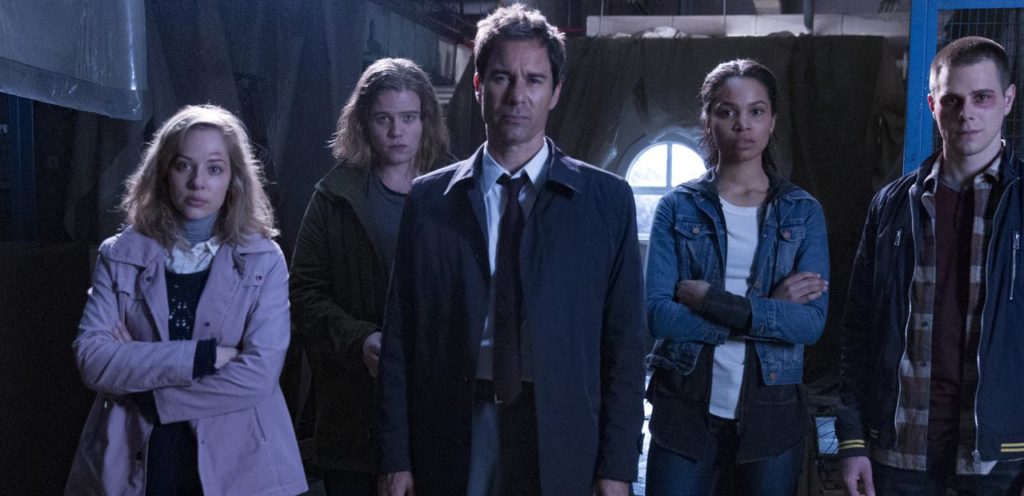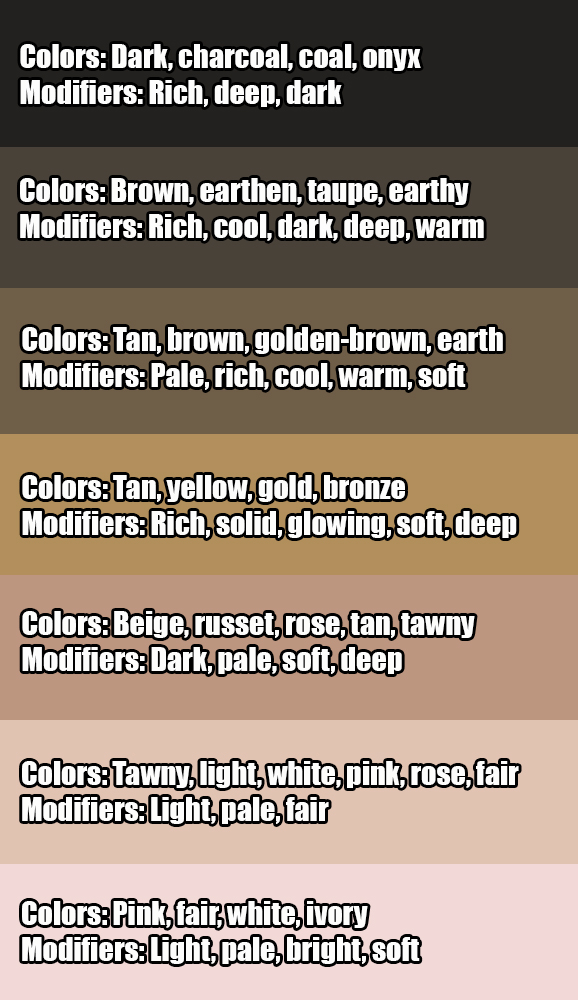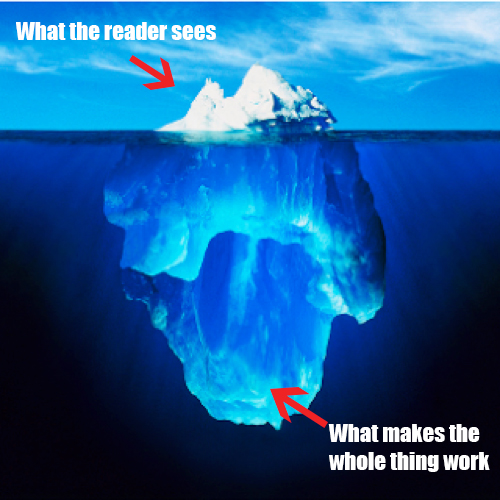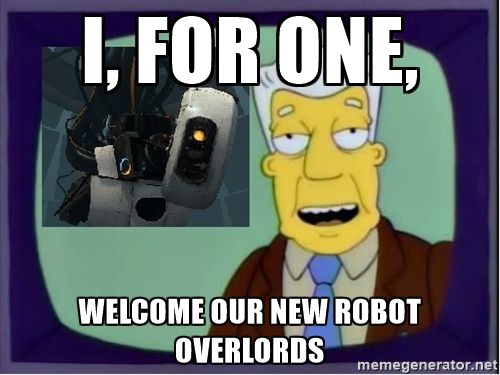I keep thinking about this and, honestly, the more I think about it, the more I honestly believe that the real problem is that the problem with modern science fiction awards is that of Category Error. I spoke with a long-time WorldCon attendee Sunday (not sure if he wants to be named here — he can message me on Facebook if he is cool with it) and after talking with him and then reading Eric Flint’s entry today (read it — it’s long but worth it), I think that it may be time to really sit down and ask a few hard questions.
1) Is WorldCon really the best avenue for trying to create the kind of award we’re trying to create? — After reading the by-laws for the convention and for SFWA, I don’t think it is. Both organizations are too unwieldy, too clunky, and have too ossified a structure to respond well to the kind of change that is needed. That’s not a slight against them — it’s just reality. Plenty of conventions and industries (hell — plenty of countries and cultures) are having a hard time keeping pace with the rapid changes that have happened over the past fifty years. Expecting a group of volunteers to master it when they’re used to playing for an audience of less than 10k is asking a bit much.
2) Just what kind of award do we want to create? — Are we really after a fan award? Another jury award? An industry award? I think the germ of the whole compliant has been that the current Hugos have ignored giants in the field in favor of fad-fiction while also shunning certain authors and their works based on the author’s politics — not on merit (which this year has proven is the case with a sizable portion of Hugo voters). The general gist has been that if the Hugos want to call themselves “THE” award of science fiction and fantasy, then they need to pay more attention to the market behavior, to the influential players in the field, and they need to increase the size of the voting pool so that it can’t be swayed by a few dozen people. Otherwise, they need to stop advertising themselves as being “THE” award and instead relabel themselves more accurately as “an award given out by a few thousand people.”
3) How can the convention structure be made less privileged? — Look, I know most of you don’t get it. I’ve never been to a single convention that my former employer didn’t pay me to go to because I can’t afford the plane ticket and hotel room to go to one. The mere fact that you can a) take the time off work to go, b) have the money to get a hotel room, c) can afford to eat out while there, d) can afford the plane ticket or gas to fly/drive there and back e) can afford the cost of admission + panels + whatever else puts you so far out of my league it’s not even funny. Even when I’ve been able to get over my mild agoraphobia and really wanted to go to a con, the cost of taking off work and going put beyond me. And it does for most everyone in my area. I doubt seriously that WorldCon (or any other current literary con) could do livestream attendance the way that BlizzCon or does. Part of it is the money/tech/knowledge issue and part of it is that I doubt very seriously there’s much love lost either way between the fans in places like Delta and Appalachia and the officers/board members of the conventions.
4) How can the voting pool be increased beyond the ability for any one group to game it? — We’re talking big numbers here. At least 20k. Better would be a voting pool of at least 50 – 100k. Again, just given the behavior shown at the Hugo awards ceremony and the kind of negative connotation WorldCon has given itself with the general population. There’s a reason why WorldCon attendance has been trending down even as science fiction and fantasy became more accepted and it’s because enough of the “TrueFans” gave it a bad reputation so that people avoided it instead of attending it or considering it. Would WorldCon ever consider even trying to get someone like writer Robert Kirkman to run a panel? Or be a GoH? Could they even get someone like Chuck Lorre to return a phone call these days? I mean, sure, GRRM comes but could they get Peter Jackson? Or forget Peter Jackson, could they get Jeri Taylor or even Kip Thorne?
No one outside of Tor (and most of the people inside probably don’t either) gives a rat’s ass about either of the Neilsen-Haydens but they’re the GoH’s for next year and they hate people like me so yeah, I’m feelin’ the love and welcome. But if a convention could get, say…Norman Reedus, Jeri Ryan, Orlando Bloom, Stephanie Meyer, Peter Dinklage, and J.K. Rowling together while hosting a Red Pill/Blue Pill contest and playing Spot the Fed during the Zombie Apocalypse, well…
That would be a con that would have Fort Knox asking to loan it some money.
4a) How can that be done without homogenizing everything? — And now we’re into the Category Error part of the problem. Science fiction isn’t a simple little niche anymore. It’s become its own genre, much like romance or horror. Could you imagine a single convention or award that tried to compare the works of R.L. Stine to that of Mary Shelley? Science fiction and fantasy are huge. You can’t compare some aspects of them to others because it’s like comparing apples to zebras — and that’s exactly what the Hugos wind up doing. You can’t just add one more category (series) and fix the problem, either. No, the issue runs much deeper than that in that the foundation upon which WorldCon and the Hugos were built is no longer large enough to support the modern sci-fi/fantasy reality.
So, what to do? Raze it (Vox Day’s option?) Slink off and exile ourselves, never writing again and let people who support pedophiles and child rape (Tor — hey, sauce for the goose. I’ll see your Vox Day and raise you Marion Zimmer Bradely) give themselves accolades while everyone else praises them?
Instead of razing it, leave it be and build something better. Build a modern convention that starts out with a massive tent. Have elements from Comic Con, Walker Stalker, BlizzCon, DefCon (that’s a techie con for you non-hackers out there. It’s awesomesauce), and all the other fun cons out there. Mix and match. Don’t make it a pure literary con. Have it be a real celebration of all that is great about being a geek or a nerd. Let the Twilighters in with their Team Edwards and Team Jacobs. Hell, we had Team Sturm and Team Tanis back in the day (and if you don’t know what I’m talking about, then go get every book that has “Dragonlance(TM)” on it and start reading). Some of us even had Team Hugh and Team Haplo (if you want really obscure).
Twilight might be drek but at least it has people reading. We all started somewhere. I started with Star Trek: The Next Generation, Dragonlance, the Death Gate Cycle, and writing the Legend of Zelda fanfic set around the game and the cartoon series when I was in elementary school.
And the awards? Well, how about this? (Just to get the convo rolling — don’t consider it a finalized thing. More a “outline I’ve worked out that probably needs some tweaking”)
I know the constellations are probably taken (and the Constellations themselves are an actual award) but imagine something like this:
The Aries — best military work (red for sci-fi, blue for fantasy)
The Aquarius — best literary work (red for sci-fi, blue for fantasy)
The Capricorn — best hard science fiction (red) or epic fantasy (blue)
The Gemini — best young adult work (red for sci-fi, blue for fantasy)
The Leo — best space opera (red) or swords-and-sorcery (blue) work
The Libra — best dystopian (red) urban fantasy (blue) work
The Sagittarius — best speculative work (red for sci-fi, blue for fantasy)
The Scorpio — best pure-superhero work (for superhero works that cannot be classed anywhere else)
The Taurus — best post-apocalyptic (red) or dark fantasy (blue) work
The Virgo — life-time achievement award
The Ophiuchus — historic recognition award
Each award has seven categories: written series, novel, novella, short story, editor-in-field, artist, and licensed work, with there being three possible additional categories: television show, film, video game. So, there would be an Aries for the best military sci-fi series, stand-alone novel, novella, short-story, editor-in-field, artist, and then licensed work in that field (such as something from Star Wars or Star Trek).
Nominations would run from, say, October 1 to January 30. Then the top fifteen for each award and category (the nominations receiving the most votes) would be put on the ballot. A jury would be selected for each award/category consisting of at least 10k people from the membership chosen randomly. They would be sent the entire packet to read and would be given a test to prove that they had read and understood the books or films or shows. Then they would be sent the ballot and allowed to vote. The top five (the five receiving the highest number of votes in each 10k voting pool) go on the final ballot for selection at the convention itself. At the convention, it’s straight up the most votes wins with “no award” requiring unanimity or the voting pool to dip below 5k.
Not a perfect system, I know. According to my man Ken Arrow, a perfect ranking system is impossible. However, with two steps of popular votes and a randomly selected jury pool with an enforced reading test (or no ballot issued and another juror chosen instead), it’s much harder to game this kind of system. There’s also less incentive for SJWs to want to do so since they’ll have the Aquarius all to themselves. And, if they do try to overrun the rest of the categories, we send them back to their little sandbox where everything is rubberfoamed and inoffensive and they can have their skin-deep diversity without any diversity of ideas and the little dears can’t hurt themselves or encounter a difficult thought/word/feeling or be triggered while the grown-ups can talk about grown-up things in all of the other categories.
Except for the Gemini, of course. Because “young adults” aren’t SJWs but aren’t grown-up, yo.
— G.K.
